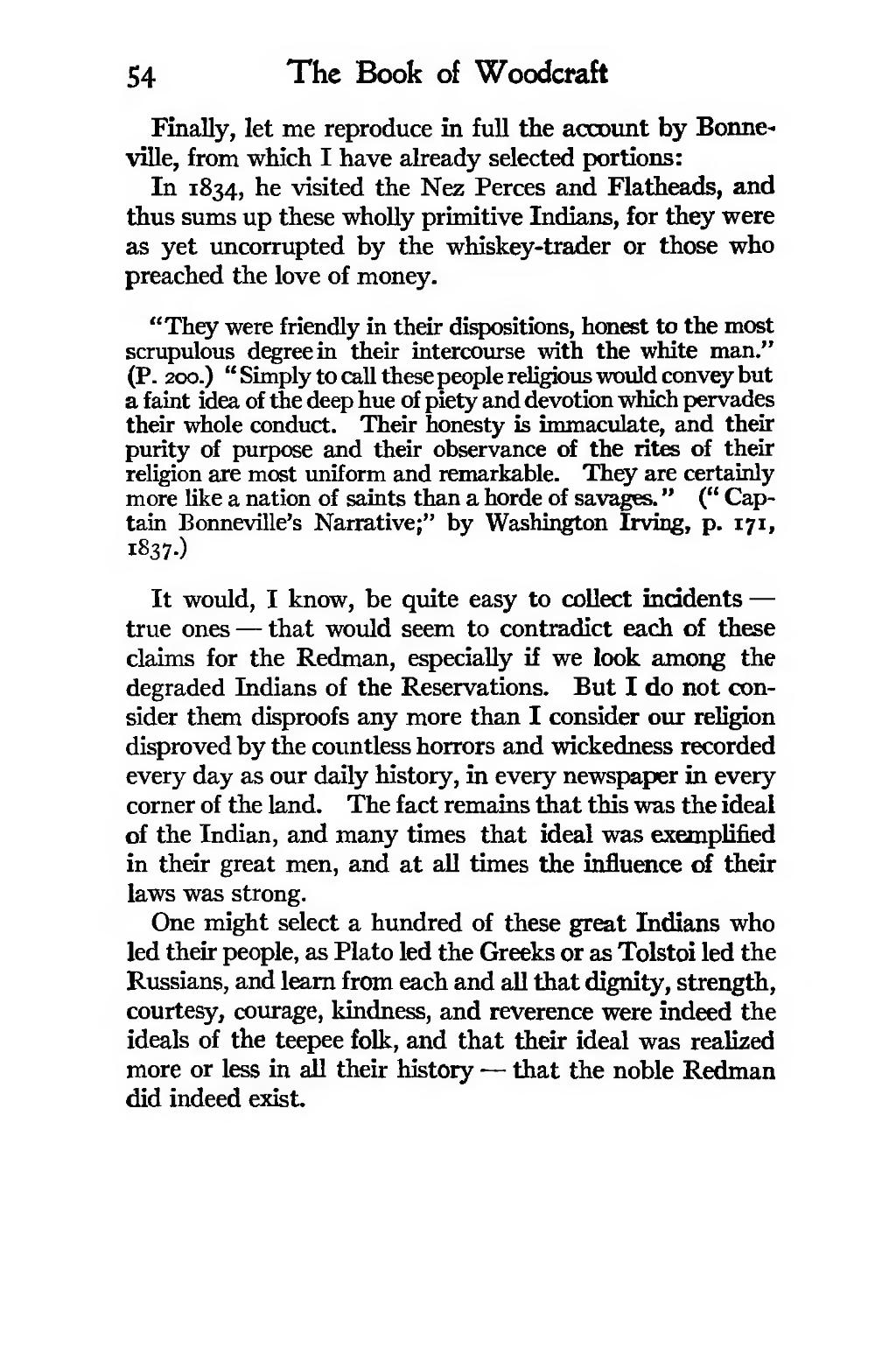54 The Book of Woodcraft Finally, let me reproduce in full the account by Bonne- ville, from which I have already selected portions: In 1834, he visited the Nez Perces and Flatheads, and thus sums up these wholly primitive Indians, for they were as yet uncorrupted by the whiskey-trader or those who preached the love of money. "They were friendly in their dispositions, honest to the most scrupulous degree in their intercourse with the white man." (P. 200.) " Simply to call these people religious would convey but a faint idea of the deep hue of piety and devotion which pervades their whole conduct. Their honesty is immaculate, and their purity of purpose and their observance of the rites of their religion are most uniform and remarkable. They are certainly more like a nation of saints than a horde of savages. " (" Cap- tain Bonneville's Narrative;" by Washington Irving, p. 171, 1837-) It would, I know, be quite easy to collect incidents — true ones — that would seem to contradict each of these claims for the Redman, especially if we look among the degraded Indians of the Reservations. But I do not con- sider them disproofs any more than I consider our religion disproved by the countless horrors and wickedness recorded every day as our daily history, in every newspaper in every corner of the land. The fact remains that this was the ideal of the Indian, and many times that ideal was exemplified in their great men, and at all times the influence of their laws was strong. One might select a hundred of these great Indians who led their people, as Plato led the Greeks or as Tolstoi led the Russians, and learn from each and aU that dignity, strength, courtesy, courage, kindness, and reverence were indeed the ideals of the teepee folk, and that their ideal was realized more or less in all their history — that the noble Redman did indeed exist.
Stránka:book 1913.djvu/76
Z thewoodcraft.org
Tato stránka nebyla zkontrolována
